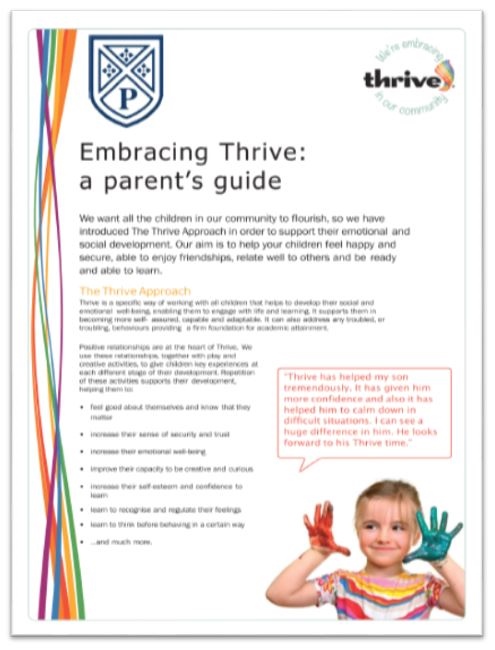SEND, Inclusion & Support
Parkside Middle School has been awarded the Thrive Ambassador School status from April 2019.
In May 2022 we were awarded Thrive school of Excellence across 4 areas: Leadership, Right-time, Reparative and Environment.
At Parkside Middle School, we want all children to flourish, so we have embedded the use of The Thrive Approach in order to support their emotional and social development.
Our aim is to help our children feel happy and secure to be able to enjoy friendships, to relate well to others and be ready and able to learn. We recognise the impact a child’s emotional development has on their overall achievement and have developed a whole school approach with specific provision within our curriculum designed to help the children with their emotional and social skills.
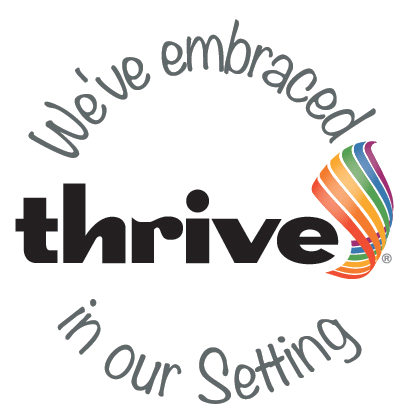
Our vision and aims
Our Vision is to:
Develop children emotionally so they are able to recognise and distinguish their emotions and learn ways of responding to their feelings appropriately.
We Aim To:
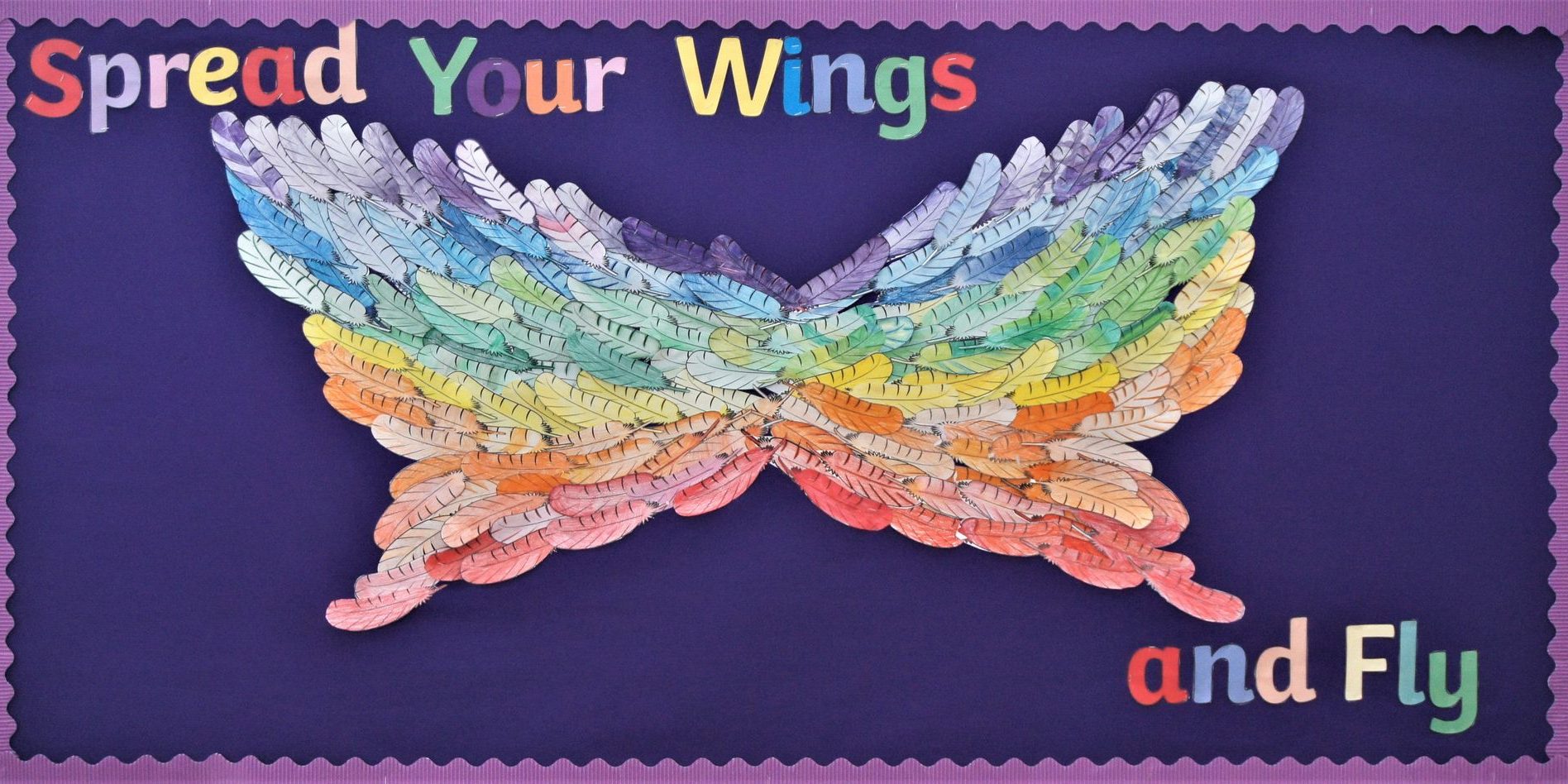
What is Thrive
Thrive is a therapeutic approach to help support children with their emotional and social development.
The Thrive approach offers practical strategies and techniques and is built around online assessments which identify children’s emotional development and provides action plans for their individual needs.
What are Vital Relational Functions (VRF’s)
Attune
This is where you are alert to how they are feeling. You demonstrate that you understand the intensity, pitch, pace, volume, expansiveness or special experience of the child’s emotional state.
Validate
This is where you are alert to the child’s experience. This needs to happen before you move to help them regulate it. This is the beginning of being able to think about feelings.
Containment
This is where you demonstrate that you understand the pitch, intensity, quality of their feeling or mood and that you can bear it. This is where you show that you can take their deep distress, raging anger or painful sorrow and make it a survivable experience. Catch it, match it and digest it by thinking about it and offering it back, named, in small digestible pieces. This builds trust for the child: in you, in adults and in the world.
Soothe, calm, stimulate
This is where you must be alert to how they are feeling and demonstrate emotional regulation by soothing and calming their distress. Catch it, match it and help the child to regulate the feeling up or down. They need to experience being calmed before they can do it for themselves.
Thrive Practitioners are trained to use VRF’s and are happy to demonstrate them.
Why might my child attend a Thrive session
Many children experience difficulties during their time at school. These may include:
- Difficulties with friendships.
- Getting into trouble at playtime.
- Finding it hard to settle in the classroom.
- Finding it difficult to manage their strong feelings.
- Not knowing who to turn to when feelings are too big to manage on their own.
These situations can lead to many different feelings which may seem overwhelming at times. They might include: anger, frustration, sadness, loneliness, confusion or anxiety.
All these feelings are very normal and happen to a lot of children. The Thrive sessions are to help children learn to manage their feelings and teach them strategies that will help promote their learning at school.
What will happen in a Thrive session
The session may be on an individual basis or as part of a small group of children. During each session there will be an activity which may include:
- Story telling
- Circle games
- Arts and crafts
- Sand play
- Movement and relaxation
- Hand and foot massage
- Cooking and preparing food
- Role play and puppet work
- Games
- Outdoor activities
- Emotional exploration
What are the benefits of Thrive
Thrive teaches the understanding of children’s behaviour as communication, improves learning skills and leads to greater attainment.
- It promotes productive learning for all children.
- It creates practical strategies that can be implemented the next day.
- It supports and empowers, providing the confidence and competence to work with challenging and vulnerable children, and with parents and integrated teams.
- It leads to better relationships at home and in school.
- It provides ongoing support through a peer group of fellow trainees, Thrive-Online support tools and continuing professional development.
- The Approach is targeted, rigorous and measured.
Our whole school commitment to the ‘Thrive’ approach impacts positively on pupils’ emotional and mental well-being, ensuring that they are confident in securing healthy relationships and that they stay safe from abuse and exploitation.
The school places great importance on the welfare of its pupils and employs a Welfare Manager, Mrs Varley, who is also a trained Thrive Practitioner, to support pupils with their everyday concerns. Mrs Varley works closely with the wider community to ensure that support from the relevant outside agencies is available to our pupils in order to improve their welfare provision.
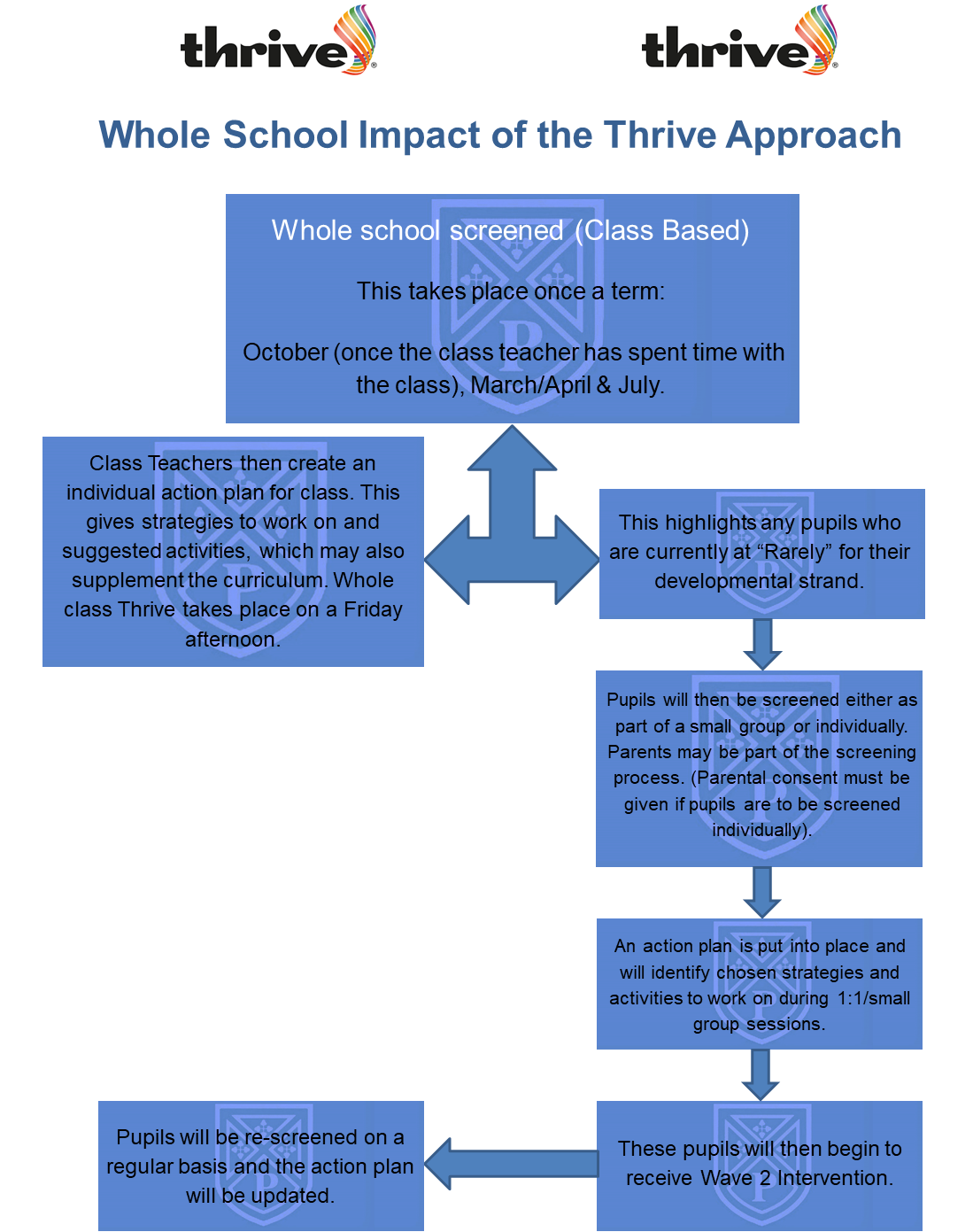
More information
Please click the booklet icon to the right to view our 'Embracing Thrive - a parent's guide' for further information.
For more information about the Thrive approach see the website: www.thriveapproach.com or contact Mrs Miarowska, Head of Thrive at Parkside Middle School on 01527 873660.
Family Thrive Afternoon
We recently held a Family Thrive for our Year 6 pupils where we invited families into our Friday afternoon Thrive. During this time parents and carers participated in the lesson where we looked at the triune brain and how it works.
Conversation focused on our instinctual brain, our emotional brain and our cognitive (thinking) brain. We used play-doh to create this and talked about how our brain reacts in certain situations. We thought about what happens when we “flip our lid” and our thinking brain disconnects from our emotional brain and we discussed the role of the amygdala and hippocampus.
Thrive Filming
Parkside Middle School was visited by Thrive and the film crew 'Defacto' who wanted to film our school as part of a training video which would be used by Thrive. All pupils involved were fantastic and it was a great experience to be involved with.
Thrive Ambassador School with:
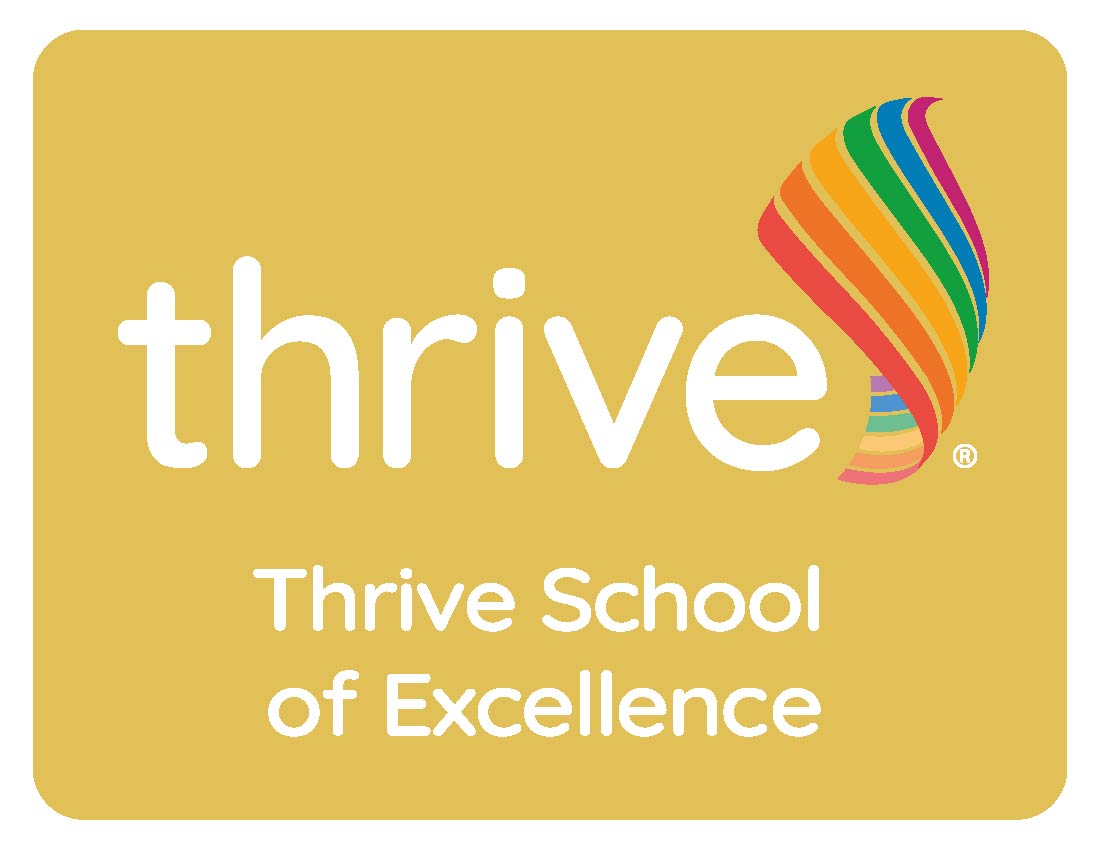
- Excellence in Right-time
- Excellence in Reparative
- Excellence in Relationship
- Excellence in Leadership
- Excellence in Environment

